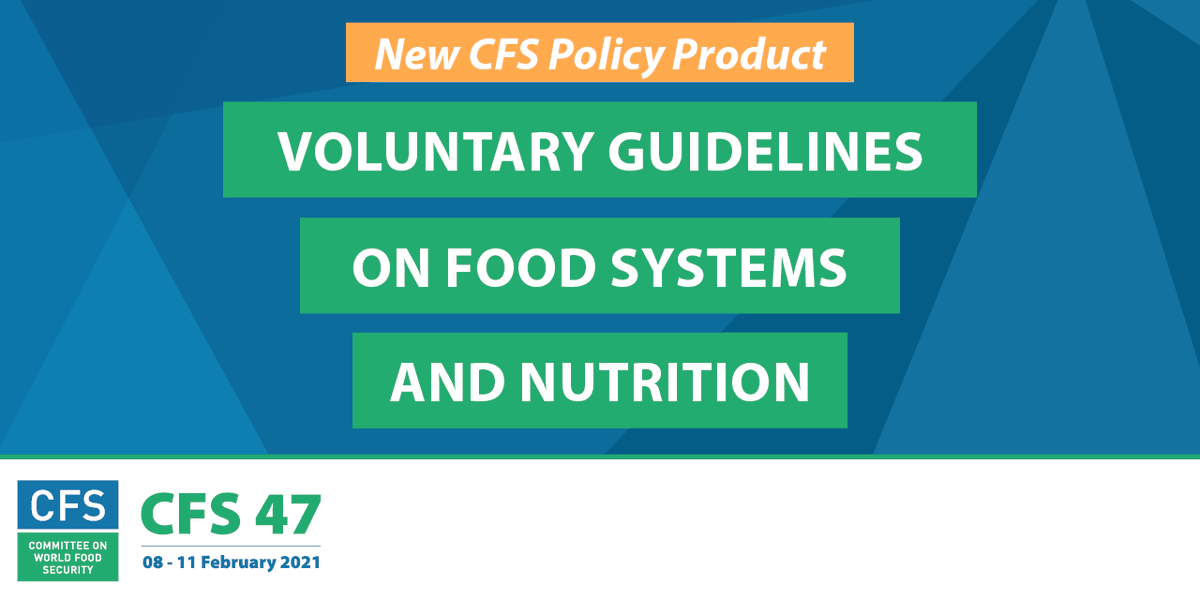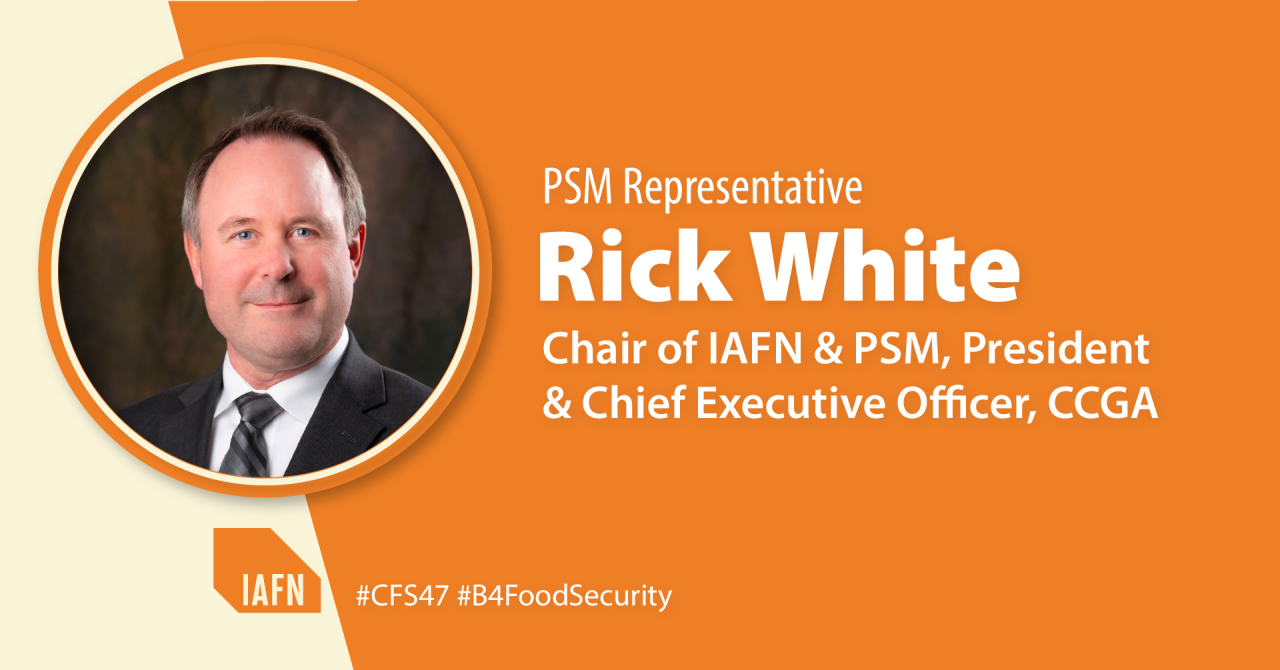World Milk Day 2024 Report – Celebrating Dairy’s Vital Role in Nutrition and Sustainability
This year, on June 1, we celebrated the vital role that dairy plays in delivering…
Every year, the Committee on World Food Security (CFS) meets in October to discuss issues pertaining to food security. This year, due to the global pandemic, the conference was held virtually from the 8th -11th February 2021, among other items, to endorse the CFS Voluntary Guidelines on Food Systems and Nutrition. The theme for CFS 47 was “Making A Difference in Food Security and Nutrition”. The plenary provided a unique worldwide platform where food security and nutrition stakeholders from all over the world agreed on policy guidance, reviewed global progress, networked, and shared experiences.
year, due to the global pandemic, the conference was held virtually from the 8th -11th February 2021, among other items, to endorse the CFS Voluntary Guidelines on Food Systems and Nutrition. The theme for CFS 47 was “Making A Difference in Food Security and Nutrition”. The plenary provided a unique worldwide platform where food security and nutrition stakeholders from all over the world agreed on policy guidance, reviewed global progress, networked, and shared experiences.
The UN Secretary General message of support was delivered by the UN Food Systems Summit Special Envoy Dr Agnes Kalibata. The conference benefitted from the appearances of the Heads of FAO, IFAD, WFP, the CFS Chairperson and the Chair of the CFS High Level Panel of Experts (HLPE) Steering Committee.
The endorsement of the Voluntary Guidelines was a culmination of five (5) years of work beginning in 2015, starting with meetings in Rome, consultations in six regions, and three rounds of virtual negotiations.
The Chair of IAFN, Mr Rick White welcomed the endorsement, and noted that thanks in part to the continued participation of Private Sector Mechanism (PSM) members, the final guidelines are balanced, reflect the importance of a science and evidence base, policy coherence and the key role of all sectors and actors for improved food systems and nutrition. The aim now in this post-adoption phase is for all CFS multi-stakeholders to turn their attention to their dissemination and implementation.
Private Sector Mechanism (PSM) members, the final guidelines are balanced, reflect the importance of a science and evidence base, policy coherence and the key role of all sectors and actors for improved food systems and nutrition. The aim now in this post-adoption phase is for all CFS multi-stakeholders to turn their attention to their dissemination and implementation.
To this end, PSM members have pledged to a wide range of actions towards improved nutrition and food systems, including a series of training webinars to educate and disseminate the voluntary guidelines across diverse regions and time zones. The aim of these guidelines is to support countries and organizations in their effort to eradicate hunger and malnutrition in all its forms by applying a food system lens.
The CFS membership also endorsed its next key output the “CFS Voluntary Guidelines on Gender Equality and Women’s and Girls’ Empowerment”. Members also restated the importance of CFS’s Framework for Action in Protracted Crises, reaffirmed CFS’s Program of Work (2020-2023), highlighted its active work to respond to COVID-19, and welcomed a record 10 new member states. The Terms of Reference document can be accessed here.
In addition to the CFS 47 Plenary discussions which gave CFS partners an opportunity to highlight their respective work, CFS 47 featured 12 side events. PSM organized one led by Solutions from the Land, Global Dairy Platform and Global Farmers Network. In all 131 people participated in a session entitled, “Agricultural Solutions: Forging Consensus Linked Food Security, Nutrition, Health and Climates Challenges”. Partner countries were Argentina, Australia, Netherlands and USA. Mr. Hem Mulders of Rabobank and Mr. Andrew Rzepa of GALLUP also represented the PSM by giving talks during the “Ensuring the Human Right to Adequate Food for Sustainable Food Systems” and “Data for Food Security” side events respectively.
their respective work, CFS 47 featured 12 side events. PSM organized one led by Solutions from the Land, Global Dairy Platform and Global Farmers Network. In all 131 people participated in a session entitled, “Agricultural Solutions: Forging Consensus Linked Food Security, Nutrition, Health and Climates Challenges”. Partner countries were Argentina, Australia, Netherlands and USA. Mr. Hem Mulders of Rabobank and Mr. Andrew Rzepa of GALLUP also represented the PSM by giving talks during the “Ensuring the Human Right to Adequate Food for Sustainable Food Systems” and “Data for Food Security” side events respectively.
The details of the side events CFS 47, summaries, and the links to zoom recordings are accessible on the CFS webpage.
In the months to come, we look forward to greater information on how to participate in the 48th session of the CFS. Before then, an Extraordinary CFS plenary session will be held on the 4th of June to finalize the Policy Recommendations for the policy convergence work on Agro-ecological and other Innovative Approaches. The latest draft can be found on the CFS working space.
There remains a lot of work to do within the various CFS workstreams during these next months and we remain committed to bringing together stakeholders and players to make this possible.